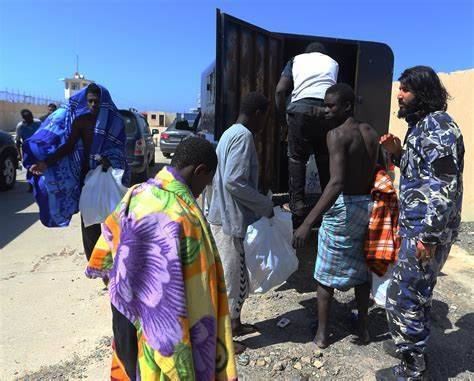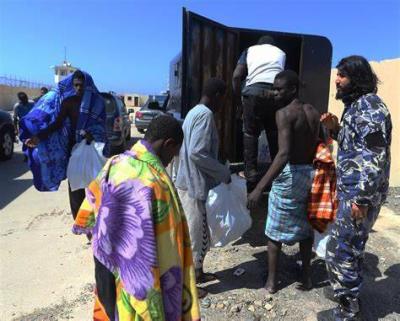A investigator from a United Nations fact-finding mission on Libya revealed on Monday that the European Union's support for Libyan authorities, who detain and hold migrants, means that the EU "aided and abetted" the commission of violations against migrants.
Investigator Shaluka Beiani made these comments after the UN fact-finding mission presented a report stating that crimes against humanity were committed against migrants in detention centers in Libya.
Beiani stated, "We are not saying that the European Union and its member states committed these crimes; what we want to convey is that the provided support aided and abetted the commission of these crimes." He continued, "We sounded the alarm, and its echoes reached the international community… which we hope will take action based on what this report has reached."
The UN mission, in its final report regarding a range of violations committed by all parties in Libya, stated that it would share any evidence of war crimes and crimes against humanity with the International Criminal Court.
It added that the crimes were committed by both state security forces and armed factions, which acted to suppress opposition and carried out murders, rapes, enslavement, and enforced disappearances.
The report noted, "The violations and abuses investigated by the mission primarily relate to the connection of power with wealth for the factions and other state-affiliated groups."
It added, "Trafficking, enslavement, forced labor, imprisonment, extortion, and the smuggling of vulnerable migrants have generated significant revenues for individuals, groups, and state institutions."
The EU and its member states had previously provided support and training to the Libyan Coast Guard, which returns migrants after their detention at sea to detention centers, and the EU funds Libyan border management programs through the Italian government.
The report is set to be presented to the UN Human Rights Council this week. Evidence gathered during investigations conducted under the council's mandate is sometimes used in cases in international courts.




